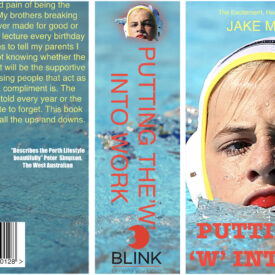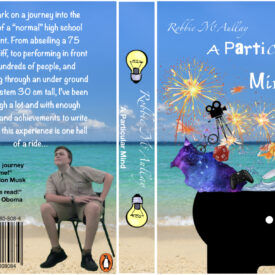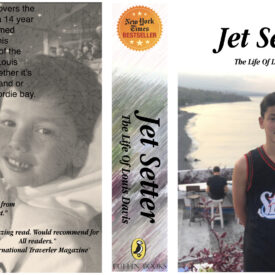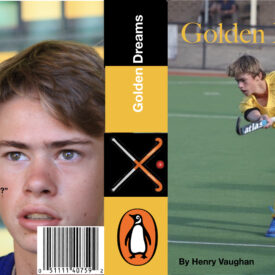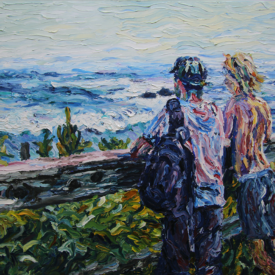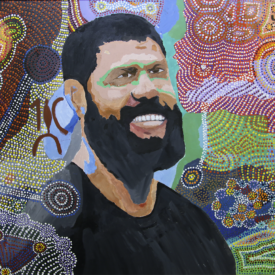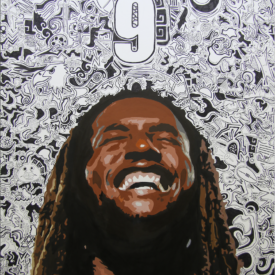He walks down the wooden path to Bronte Beach, Sydney. The footpath lined on both sides by decrepit fences and decayed bushes – a failed council initiative that has succumbed to the sea air. The corrugations of sand seemed to flow out from the rotted path planks into the sea, with little differentiation in-between – as if the whole beach is an island away from the array of busyness.
His Armani shoes sink into the white sand, bringing to attention the grittiness and uncomfortable natural sensation. They’re a leftover from his last great conquest, now an awkward eye roll on the way in and out of the office to get his flat white.
He surrenders to the sand, throwing his wallet and keys to be eaten up by the grains. Stiffly sitting down in a natural indentation in the sand dune, he checks his watch, 22:37…. just an hour after finishing work and nursing a bottle of bottom shelf spirits. The lid is cracked open revealing the strangely sterile aroma, and a gulp is taken down, no mixers this time. He tips it back, and with each swig
I was only the middleman
I didn’t really know what I was doing
… I didn’t think I’d get caught
I wouldn’t let me off.
…
Police wander on the street below his office window. It is impossible, but he can swear that he can hear the thudding of their shoes on the pavement, and the rhythm matching the tapping of his fingers on the desk. Sweat dances down his face as the shredder drowns email printouts, with the digital copies, once his insurance, already thrown off the end of the wharf.
Frappe $4:32-$4:11 short
-Ed
Skinny $6:43 predicted $5 short
-Kim
Americano $11.89 Buy net profit up 12%
-Jay
By 11:45, he unplugs his office phone, the occasional ringing becoming unbearable. The desktop whirrs in time to the drumming of his fingertips in his office, and even the stirrup in his ear is in time, resulting in a massive migraine. He rifles about in his top drawer for a codeine cure, tossing out ballpoints, sticky notes and rejected business cards he forgot he’d had there.
He thinks of his defence should they turn up, whoever they are. He’d first have to ask them for some painkillers, since his aren’t anywhere.
Andrew’s not in today, another tie job like him, the year above at Kings. Part of him is worried he’s been recording everything he said, based on their bathroom conversations. He forages around Andrew’s desk looking for painkillers before shuffling everything vaguely back into his chaotic order. He checks the street below by standing on his desk and peering down onto the tiny ants below, looking for a flash of blue or yellow.
“There’s someone on the phone for you…” His receptionist is standing in the door, her eyebrow raised. Her perfectly manicured nails are tapping on the doorway glass and it feels like she knows.
“Tell them I’m busy!” He shuffles the paper off the desk and grabs his briefcase, barging past her out into the hallway and increasing his pace towards the lift.
He sees everyone looking at him, their eyes swirling up from phones and behind their eyelids to meet his, like they’re taunting him. He rushes into the lift and tries to press the buttons fast enough to close it, but the Legal Department crowds in filling the lift, as the throbbing in his temple grows.
“Ground Floor” the elevator announces asininely, as he tries to walk across the polished tiles quietly, but every step is a squeak announcing his shame to the Lobby. The Screw is in her usual office, and he marches up to her affecting control, trying to rub the sweat from his forehead. He asks her if anyone’s come in for him today, and she shakes her head. She hates him now for what he’s done.
“Got any Panadol?”
“What?”
“Oh, for goodness sake!”
His phone vibrates, and he rushes out of the Front Office and into the refuge of the marbled bathroom. It’s Edward. He hesitates and cancels the call – can’t be more incriminating than he has been already. A thought strikes him,
Am I a good person?
and he places his phone in the sink and he switches on the tap, watching it drown.
He wishes it would just die! He eventually switches it off, grabbing it and stomping out of the bathroom, loosening his tie.
Surely Dad could arrange something, with thirty years in property and four years on the Frontbench.
He walks out onto the street and is assaulted by the sound of life – chatter, phones going off…they never really go away. He drops the phone squarely on the pavement, with a twist of the heel, he listens to the satisfying crunch. Vindication.
—
He’s jerked back to the beach with the now half empty Smirnoff and realises his head is lolling. And his eyes can’t focus, like at the Valedictorian, choked by his prefect’s tie, and untameable ego. He could have been anything – surgeon, banker, politician. But what has it come to?
Soon he’ll be a name they want to scratch off the Honours’ board.

